
Article by BR Natalie
Not to sound like a nagging nelly, but if sunscreen isn't part of your daily routine yet - it should be! Our little pop quiz shouldn't have you stumped. Sunscreen and SPF are DAILY ESSENTIALS, for everyone in your family. Gone are the days when sunscreen was greasy or left your skin feeling a little ick - sunscreen formulas are now perfected to sit under makeup and even benefit your skin (you know, other than it's purpose of prevent skin cancer...)
So here's a little BR guide to sunscreen - because it's bloody important and quite literally life-saving stuff. We're incredibly passionate about sunscreen, and you should be too.

Rated: 4.6 / 5
Read reviews on La Roche-Posay Anthelios XL here.
Why use sunscreen - Unless you've been living under a rock (in which case you will be in dire need of some fake tan) you'll know that prolonged exposure to UV rays is harmful. Whether you catch these rays au natural outdoors or using a sunbed; it doesn't make a difference – UV rays are bad for us. You don't need another lecture on the risks of skin cancers (melanoma and non-melanoma). You probably don't even need to hear again about 'lesser' effects; wrinkles, skin spots, leathered/weathered skin, skin dryness, sagging, loss of elasticity, mottled pigmentation...you just need to get it into your head (and on to your skin) - use sunscreen daily.
UV-what now?
You're probably familiar with the two types of harmful UV rays - UVAs and UVBs.
- UVAs "A" is for 'ageing' - they penetrate deep into the skin's layers cause long term damaging effects on the skin. Sunbeds use primarily UVA rays.
- UVBs "B " is for 'burning' - they cause sunburn.
Traditionally sunscreens only really worry about UVBs, so where possible opt for a broad-spectrum sunscreen for maximum protection.

SPF.
This stands for - Sun Protection Factor.
You might think it's simply a case of "the higher the number the longer it will protect me". This is wrong! SPF is directly related to the individual's burn time.
So if you burn within 10 minutes of unprotected sun exposure, SPF 30 will protect you for 10 minutes x 30. So 300 minutes.
Remember: Minutes to burn without sunscreen x SPF number = maximum sun exposure time
It's important to note that the absorption of UVB (burning) rays isn't dramatically increased the higher the SPF, there's only a difference of about 3.4% of absorption between SPF 15 and SPF 30, not double the absorption as you might expect.
Now, that being said - SPF measurements can vary from brand to brand - so read the label and follow the instructions.

Rated: 4.4/5
Read reviews on Olay Complete Defence SPF30+ here.
Chemical or Physical?
There are two types of sunscreen - physical and chemical.
- Physical sunscreens block the or deflect the sun's rays. Zinc Oxide and Titanium Oxide are the biggies in this area, with Zinc Oxide being broad spectrum.
- Chemical sunscreens absorb the sun's rays and some even scatter them. Some common UV filters are: Octylcrylene, Avobenzone and Oxybenzone.
Expiration Dates.
If there is one product you must be diligent about chucking out, it's sunscreen. The active ingredients rapidly deteriorate over time. So that same bottle you've been using for the past 3 years? Chuck it out. Chuck it out now.
Use enough.
Sunscreen is not foundation. Sunscreen is not like black eyeliner. Less is not more. Slather it on. Slip, Slap, Slop. The average sunscreen-er applies about half the amount used in the testing process - meaning they're probably not getting the protection they think they are. We say it again - slather.

Rated: 4.5/5
Read reviews on Oasis Sun here.
Apply BEFORE exposure.
Applying your sunscreen 30 minutes before you go outside! Not after you've been sitting on the beach, running around for 10 minutes and think "I'm starting to get a bit burnt"! Guess what? You already are!
Every morning when getting my boys ready for the day we all apply sunscreen. To our faces, back of the neck, arms and legs. Not just the areas that will probably see sun - any area that might see sun. Like brushing our teeth it's just routine. Sure every once in a while the boys protest, but they just get told, 'every day we must put on our sunscreen'. Job Done
Reapply...
...and repeat. Ok, even if you've done the maths and are confident you are protected for xx amount of time, you need to consider other factors:
- Your skin literally uses the active ingredients up - so the more you're in the sun, the more often you'll need to reapply - at least every 2 hours.
- Sweat, water and pollutants in the air can also cause your sunscreen to wear off. So if you're active in the sun, reapply hourly.
You still need it if it's not that hot.
Cold but sunny, is still sunny. If the sun is out, you are being exposed to those harmful rays. Get in the habit of applying sunscreen daily, whatever the 'meter reads.

Rated: 4.5/5
Read reviews on Nivea Sun Face Veil here.
SPFs in your cosmetics will probably not be enough.
Remember the key word for sunscreen application is slather. It stands to reason then that the SPF in your foundation probably isn't going to cut it. You'll still need a good layer of sunscreen under your makeup too.
Don't spray and walk away.
Let your sunscreen absorb before you get dressed, dive in the pool or go for a run.
Don't rely solely on sunscreen.
Channel your inner J-Lo and don a big floppy hat. Protect your eyes with some sunglasses and choose a swimsuit with special UV blocking material to protect your nether regions and what nots...
So there's our guide to Sunscreens - did you learn anything new? Do you have any questions? Get chatting below!

Article by BR Natalie
Not to sound like a nagging nelly, but if sunscreen isn't part of your daily routine yet - it should be! Our little pop quiz shouldn't have you stumped. Sunscreen and SPF are DAILY ESSENTIALS, for everyone in your family. Gone are the days when sunscreen was greasy or left your skin feeling a little ick - sunscreen formulas are now perfected to sit under makeup and even benefit your skin (you know, other than it's purpose of prevent skin cancer...)
So here's a little BR guide to sunscreen - because it's bloody important and quite literally life-saving stuff. We're incredibly passionate about sunscreen, and you should be too.

Rated: 4.6 / 5
Read reviews on La Roche-Posay Anthelios XL here.
Why use sunscreen - Unless you've been living under a rock (in which case you will be in dire need of some fake tan) you'll know that prolonged exposure to UV rays is harmful. Whether you catch these rays au natural outdoors or using a sunbed; it doesn't make a difference – UV rays are bad for us. You don't need another lecture on the risks of skin cancers (melanoma and non-melanoma). You probably don't even need to hear again about 'lesser' effects; wrinkles, skin spots, leathered/weathered skin, skin dryness, sagging, loss of elasticity, mottled pigmentation...you just need to get it into your head (and on to your skin) - use sunscreen daily.
UV-what now?
You're probably familiar with the two types of harmful UV rays - UVAs and UVBs.
- UVAs "A" is for 'ageing' - they penetrate deep into the skin's layers cause long term damaging effects on the skin. Sunbeds use primarily UVA rays.
- UVBs "B " is for 'burning' - they cause sunburn.
Traditionally sunscreens only really worry about UVBs, so where possible opt for a broad-spectrum sunscreen for maximum protection.

SPF.
This stands for - Sun Protection Factor.
You might think it's simply a case of "the higher the number the longer it will protect me". This is wrong! SPF is directly related to the individual's burn time.
So if you burn within 10 minutes of unprotected sun exposure, SPF 30 will protect you for 10 minutes x 30. So 300 minutes.
Remember: Minutes to burn without sunscreen x SPF number = maximum sun exposure time
It's important to note that the absorption of UVB (burning) rays isn't dramatically increased the higher the SPF, there's only a difference of about 3.4% of absorption between SPF 15 and SPF 30, not double the absorption as you might expect.
Now, that being said - SPF measurements can vary from brand to brand - so read the label and follow the instructions.

Rated: 4.4/5
Read reviews on Olay Complete Defence SPF30+ here.
Chemical or Physical?
There are two types of sunscreen - physical and chemical.
- Physical sunscreens block the or deflect the sun's rays. Zinc Oxide and Titanium Oxide are the biggies in this area, with Zinc Oxide being broad spectrum.
- Chemical sunscreens absorb the sun's rays and some even scatter them. Some common UV filters are: Octylcrylene, Avobenzone and Oxybenzone.
Expiration Dates.
If there is one product you must be diligent about chucking out, it's sunscreen. The active ingredients rapidly deteriorate over time. So that same bottle you've been using for the past 3 years? Chuck it out. Chuck it out now.
Use enough.
Sunscreen is not foundation. Sunscreen is not like black eyeliner. Less is not more. Slather it on. Slip, Slap, Slop. The average sunscreen-er applies about half the amount used in the testing process - meaning they're probably not getting the protection they think they are. We say it again - slather.

Rated: 4.5/5
Read reviews on Oasis Sun here.
Apply BEFORE exposure.
Applying your sunscreen 30 minutes before you go outside! Not after you've been sitting on the beach, running around for 10 minutes and think "I'm starting to get a bit burnt"! Guess what? You already are!
Every morning when getting my boys ready for the day we all apply sunscreen. To our faces, back of the neck, arms and legs. Not just the areas that will probably see sun - any area that might see sun. Like brushing our teeth it's just routine. Sure every once in a while the boys protest, but they just get told, 'every day we must put on our sunscreen'. Job Done
Reapply...
...and repeat. Ok, even if you've done the maths and are confident you are protected for xx amount of time, you need to consider other factors:
- Your skin literally uses the active ingredients up - so the more you're in the sun, the more often you'll need to reapply - at least every 2 hours.
- Sweat, water and pollutants in the air can also cause your sunscreen to wear off. So if you're active in the sun, reapply hourly.
You still need it if it's not that hot.
Cold but sunny, is still sunny. If the sun is out, you are being exposed to those harmful rays. Get in the habit of applying sunscreen daily, whatever the 'meter reads.

Rated: 4.5/5
Read reviews on Nivea Sun Face Veil here.
SPFs in your cosmetics will probably not be enough.
Remember the key word for sunscreen application is slather. It stands to reason then that the SPF in your foundation probably isn't going to cut it. You'll still need a good layer of sunscreen under your makeup too.
Don't spray and walk away.
Let your sunscreen absorb before you get dressed, dive in the pool or go for a run.
Don't rely solely on sunscreen.
Channel your inner J-Lo and don a big floppy hat. Protect your eyes with some sunglasses and choose a swimsuit with special UV blocking material to protect your nether regions and what nots...
So there's our guide to Sunscreens - did you learn anything new? Do you have any questions? Get chatting below!
Article by BR Natalie
Not to sound like a nagging nelly, but if sunscreen isn't part of your daily routine yet - it should be! Our little pop quiz shouldn't have you stumped. Sunscreen and SPF are DAILY ESSENTIALS, for everyone in your family. Gone are the days when sunscreen was greasy or left your skin feeling a little ick - sunscreen formulas are now perfected to sit under makeup and even benefit your skin (you know, other than it's purpose of prevent skin cancer...)
So here's a little BR guide to sunscreen - because it's bloody important and quite literally life-saving stuff. We're incredibly passionate about sunscreen, and you should be too.

Rated: 4.6 / 5
Read reviews on La Roche-Posay Anthelios XL here.
Why use sunscreen - Unless you've been living under a rock (in which case you will be in dire need of some fake tan) you'll know that prolonged exposure to UV rays is harmful. Whether you catch these rays au natural outdoors or using a sunbed; it doesn't make a difference – UV rays are bad for us. You don't need another lecture on the risks of skin cancers (melanoma and non-melanoma). You probably don't even need to hear again about 'lesser' effects; wrinkles, skin spots, leathered/weathered skin, skin dryness, sagging, loss of elasticity, mottled pigmentation...you just need to get it into your head (and on to your skin) - use sunscreen daily.
UV-what now?
You're probably familiar with the two types of harmful UV rays - UVAs and UVBs.
- UVAs "A" is for 'ageing' - they penetrate deep into the skin's layers cause long term damaging effects on the skin. Sunbeds use primarily UVA rays.
- UVBs "B " is for 'burning' - they cause sunburn.
Traditionally sunscreens only really worry about UVBs, so where possible opt for a broad-spectrum sunscreen for maximum protection.

SPF.
This stands for - Sun Protection Factor.
You might think it's simply a case of "the higher the number the longer it will protect me". This is wrong! SPF is directly related to the individual's burn time.
So if you burn within 10 minutes of unprotected sun exposure, SPF 30 will protect you for 10 minutes x 30. So 300 minutes.
Remember: Minutes to burn without sunscreen x SPF number = maximum sun exposure time
It's important to note that the absorption of UVB (burning) rays isn't dramatically increased the higher the SPF, there's only a difference of about 3.4% of absorption between SPF 15 and SPF 30, not double the absorption as you might expect.
Now, that being said - SPF measurements can vary from brand to brand - so read the label and follow the instructions.

Rated: 4.4/5
Read reviews on Olay Complete Defence SPF30+ here.
Chemical or Physical?
There are two types of sunscreen - physical and chemical.
- Physical sunscreens block the or deflect the sun's rays. Zinc Oxide and Titanium Oxide are the biggies in this area, with Zinc Oxide being broad spectrum.
- Chemical sunscreens absorb the sun's rays and some even scatter them. Some common UV filters are: Octylcrylene, Avobenzone and Oxybenzone.
Expiration Dates.
If there is one product you must be diligent about chucking out, it's sunscreen. The active ingredients rapidly deteriorate over time. So that same bottle you've been using for the past 3 years? Chuck it out. Chuck it out now.
Use enough.
Sunscreen is not foundation. Sunscreen is not like black eyeliner. Less is not more. Slather it on. Slip, Slap, Slop. The average sunscreen-er applies about half the amount used in the testing process - meaning they're probably not getting the protection they think they are. We say it again - slather.

Rated: 4.5/5
Read reviews on Oasis Sun here.
Apply BEFORE exposure.
Applying your sunscreen 30 minutes before you go outside! Not after you've been sitting on the beach, running around for 10 minutes and think "I'm starting to get a bit burnt"! Guess what? You already are!
Every morning when getting my boys ready for the day we all apply sunscreen. To our faces, back of the neck, arms and legs. Not just the areas that will probably see sun - any area that might see sun. Like brushing our teeth it's just routine. Sure every once in a while the boys protest, but they just get told, 'every day we must put on our sunscreen'. Job Done
Reapply...
...and repeat. Ok, even if you've done the maths and are confident you are protected for xx amount of time, you need to consider other factors:
- Your skin literally uses the active ingredients up - so the more you're in the sun, the more often you'll need to reapply - at least every 2 hours.
- Sweat, water and pollutants in the air can also cause your sunscreen to wear off. So if you're active in the sun, reapply hourly.
You still need it if it's not that hot.
Cold but sunny, is still sunny. If the sun is out, you are being exposed to those harmful rays. Get in the habit of applying sunscreen daily, whatever the 'meter reads.

Rated: 4.5/5
Read reviews on Nivea Sun Face Veil here.
SPFs in your cosmetics will probably not be enough.
Remember the key word for sunscreen application is slather. It stands to reason then that the SPF in your foundation probably isn't going to cut it. You'll still need a good layer of sunscreen under your makeup too.
Don't spray and walk away.
Let your sunscreen absorb before you get dressed, dive in the pool or go for a run.
Don't rely solely on sunscreen.
Channel your inner J-Lo and don a big floppy hat. Protect your eyes with some sunglasses and choose a swimsuit with special UV blocking material to protect your nether regions and what nots...


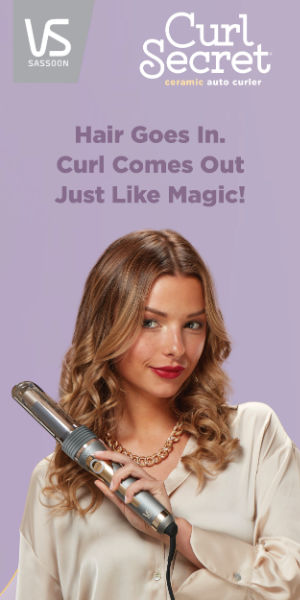
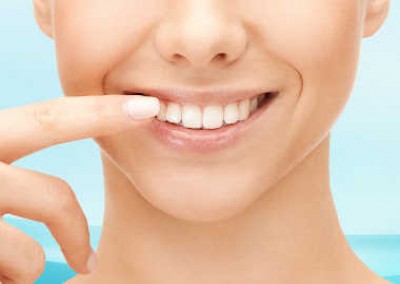

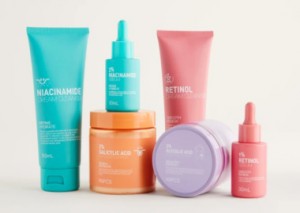
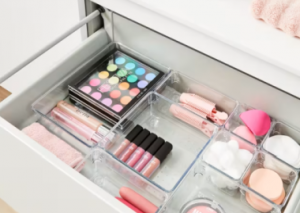

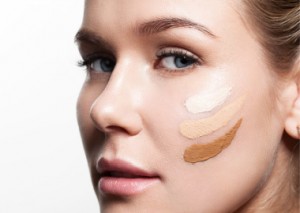
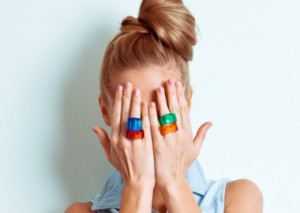
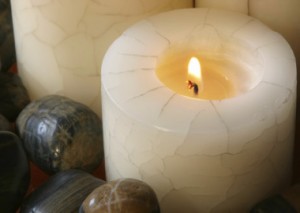
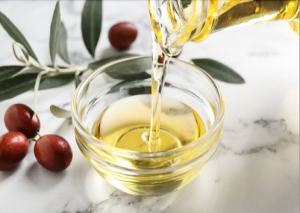

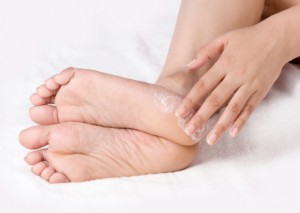
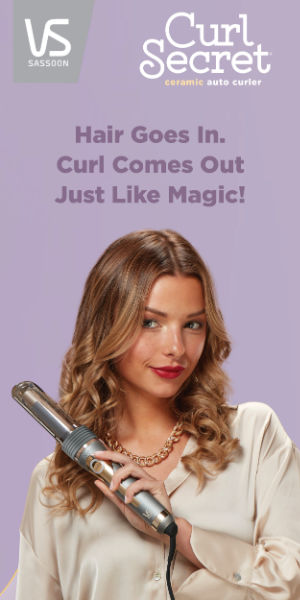
I use sunscreen everyday... it says 50 spf.. but i always question whether it truely has 50 As i’m still getting a lot of freckles hahahahaha =D